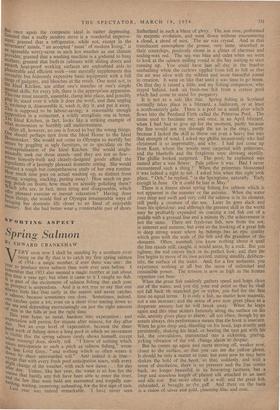Professor Rostow's book, which is sponsored by the Massachusetts Institute
of Technology, conforms to a somewhat similar pattern. It is ill served by an exaggerated panegyric in the English publisher's blurb : "of immense importance ... unique ... a permanent contri- bution to a vital subject." The Dynamics of Soviet Society itself makes no such claim—indeed the Prefatory Note (with perhaps excessive modesty) speaks of its acceptance by specialists as a 'useful approximation.' It is a book by a non-specialist in the subject, and appears to be based almost entirely on secondary sources. The historical sections are open to some criticism; for instance to suggest that Brest-Litovsk marked the end of Lenin's faith in world revolution is surely to go right against the evidence of authorities that Professor Rostow lists. But the work as a whole is well written and well arranged, and the analysis of Soviet society and Soviet government today is sane, balanced and admirably clear. This is just the book for the educated layman who wants to know, in two hundred and fifty pages, what present-day Russia, adds up to.
DAVID FOOTMAN
New Novels
The Hidden Heart. By Jane Gillespie. (Peter Davies. 12s. 6d.) Consult Your Pillow. By John Coates. (Gollancz. 10s. 6d.) The Flaw in the Crystal. By Godfrey Smith. (Gollancz. 10s. 6d.)
Miss JANE GILLESPIE is a poet as well as a novelist, which may excuse a brief speculation on what is to be expected from a poet's novels. What we ought to get, perhaps, if the poet is any good as a poet, is more sense and less sensibility than usual, more coherence, more and finer irony, and an absence of inane gushes of ' style.' Knowing all too well what we are all too likely to get, I was stunned to recog- nise in The Hidden Heart the very qualities I have mentioned. The sentimental title and jacket-design give a wrong idea of Miss Gillespie's level, and so, probably, will any bald summary of her theme. " A young girl's discovery of the meaning of love" sounds over-familiar to the point of nausea, but this book isn't nauseating : it is sober, detached and humorous. Though far from being an author- surrogate, the heroine, Charlotte Musgrave, shares in these virtues, and is furthermore affectionate and undemanding, entirely free from the moody egocentricity that appears almost compulsory for young female protagonists.



































 Previous page
Previous page